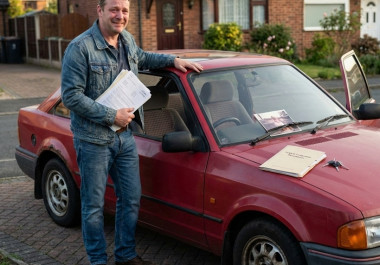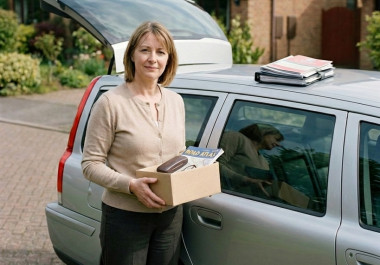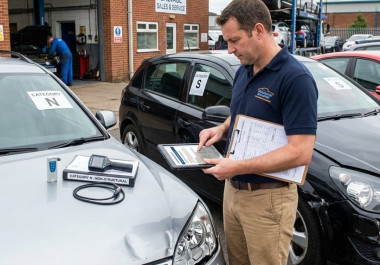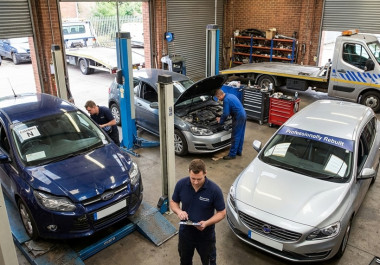The car auction landscape in Wales has evolved into a reliable avenue for sourcing vehicles across every segment of the market. From everyday drivers to commercial models, auctions provide a streamlined and affordable route to ownership. The Welsh market, in particular, reflects a distinct combination of rural utility and urban practicality, making local auctions exceptionally diverse in scope.
With numerous formats and platforms to explore, understanding how these auctions operate, along with the typical buyer expectations, can make all the difference between a worthwhile investment and a missed opportunity. Whether attending in person or bidding online, buyers benefit from a broad spectrum of vehicles and a straightforward purchasing process.
The Landscape of Vehicle Auctions in Wales
Welsh car auctions offer more than just a place to purchase a vehicle; they reflect regional lifestyles and the practical needs of both individuals and businesses. In towns and cities like Cardiff, Swansea, and Newport, compact cars and hybrids dominate the listings due to traffic concerns and emission regulations. Meanwhile, rural regions show a marked preference for vehicles with more robust features, such as 4x4s, estate models, and vans, which are better suited for agricultural and off-road use.
This diversity is mirrored in the structure of auction events themselves. Regular public auctions are widely accessible and attract individuals seeking personal vehicles at reasonable prices. Dealer auctions, which are restricted to licensed motor traders, typically offer vehicles at wholesale rates, making them a staple for resale professionals. Online auctions, available through the Raw2K platform, have significantly broadened participation, allowing buyers to bid from any location.
Why Buyers Choose Welsh Auctions
Affordability remains one of the biggest incentives behind auction-based purchases. Vehicles are often sold close to their trade value, with bidding competition ensuring a fair market rate rather than inflated retail pricing. For those with a set budget and some flexibility in terms of model preference, auctions can present unmatched value.
What also sets Welsh auctions apart is the variety on offer. Listings range from everyday hatchbacks and family estates to commercial vans, hybrid models, and even the occasional rare collector’s car. The range is especially helpful for first-time buyers and small business owners looking to minimise overheads without sacrificing quality or performance.
To discover current listings and stand-out entries, the Featured Auctions section is regularly updated and worth monitoring.
Vehicle Preferences Across Welsh Regions
The geography of Wales plays a direct role in shaping vehicle demand. Urban dwellers often gravitate toward smaller, eco-friendly options due to restricted parking and environmental zoning. Models like compact hatchbacks, hybrids, and electric cars are frequently listed in areas such as Cardiff and Newport. These vehicles combine fuel efficiency with ease of manoeuvring, making them ideal for city living.
Conversely, in the valleys, coastal areas, and hilly countryside, durability and load capacity take precedence. Vehicles with elevated clearance and strong suspension, such as pickups, 4x4s, and light trucks, are routinely prioritised by drivers navigating challenging terrain or transporting tools and equipment. Auction listings often reflect these regional variations, so buyers can generally find options that meet the practical demands of their environment.
For those interested in commercial models, listings are available in the Van Auctions and Truck Auctions categories.
Before the Bidding Begins: Preparing for Auction Participation
Success in the auction process hinges on preparation. Prospective buyers should start by researching vehicles of interest, including checking mileage, ownership history, and market comparisons. Most online auctions, including those hosted by Raw2K, provide detailed listings with images and condition reports, which are critical when bidding remotely.
For in-person attendance, arriving early allows time for on-site inspections. Understanding the general state of a vehicle, tyre wear, engine sound, and service records can protect against unexpected repairs post-sale. Those unable to view vehicles physically should rely on platforms that prioritise listing accuracy and transparency.
Equally important is budgeting. Auction days can become fast-paced, and emotional bidding is not uncommon. Buyers benefit from setting a firm spending ceiling ahead of time, factoring in not just the sale price but also auxiliary expenses such as transport, registration, insurance, and minor fixes. Reviewing the Help section offers practical advice for navigating these financial considerations.
A Practical Approach to Bidding
Once the auction begins, staying composed and alert is key. Unlike traditional car buying, auctions require real-time decisions, often within seconds. Observing how bids unfold before jumping in can help participants identify trends or gauge vehicle popularity. Some bidders begin with lower offers to feel out the competition, while others prefer a direct approach, securing a strong early position.
Regardless of the method, setting a limit per vehicle is crucial. The goal is value, not victory, and sticking to predetermined thresholds ensures that emotion doesn't override logic. It’s also wise to keep several options in mind in case your preferred vehicle exceeds your budget.
For those selling rather than buying, the Auction My Car page outlines an easy process for listing vehicles.
Completing the Purchase
After a successful bid, the transaction must be completed swiftly and in line with auction house policies. Payment terms typically include a deposit followed by the remaining balance within a short timeframe. Failing to meet deadlines could result in forfeiture or penalties.
Documentation is another essential step. Buyers should ensure all ownership transfer forms are completed correctly and that service records, registration certificates, and invoices are collected or requested. For those unfamiliar with the procedure, the Terms page outlines legal and logistical obligations.
Vehicles may be collected in person or delivered via professional transport services, an option worth considering for non-roadworthy cars or long-distance deliveries.
Types of Vehicles to Watch For
Certain categories remain consistently sought after across Welsh auctions:
-
Hybrid and electric vehicles, particularly in emission-sensitive zones
-
Utility vans and trucks, preferred by tradespeople and fleet operators
-
Budget hatchbacks, ideal for new drivers or as second vehicles
-
4x4s and SUVs, often chosen for rural practicality and safety
The demand in these segments supports strong resale potential, making them worthwhile considerations even for buyers with short-term ownership plans.
To browse vehicles across all categories, check the All Cars section.
Post-Purchase Considerations
Ownership doesn't end at the fall of the hammer. New buyers should immediately secure insurance and arrange for a vehicle condition check, especially if the auction listing flagged any prior damage or mechanical concerns. Confirming roadworthiness is vital before taking the car out on public roads.
Tax and MOT status should also be addressed without delay. It is the responsibility of the new owner to ensure the vehicle is legally compliant. Failing to register ownership with the DVLA may delay the receipt of logbooks and affect future transactions. For further guidance, reach out through the Contact Page to speak with the support team directly.
Opportunities Through Online Auctions
In recent years, online auctions have become a cornerstone of the vehicle buying process. Welsh buyers now access vehicles from all over the UK through digital platforms that allow real-time bidding and comprehensive filtering tools. These systems not only replicate the feel of traditional auctions but also extend convenience to those unable to travel.
Whether browsing at home or placing bids during lunch breaks, users can enjoy full access to listings, vehicle details, and documentation through intuitive interfaces. The flexibility and range available through online options continue to attract new participants across Wales.
Access by Day: Staying in Step with Auction Schedules
Auction listings update regularly, often on a rolling basis throughout the week. Staying on top of upcoming opportunities is as easy as checking the daily schedules:
Frequent browsing can help identify trends and spot standout vehicles early.
Final Note
Car auctions in Wales offer an open, structured, and cost-efficient means of acquiring vehicles across nearly every segment. By preparing thoroughly, respecting the process, and using reliable resources such as Raw2K, buyers position themselves for informed and rewarding purchases. The combination of variety, access, and competitive pricing continues to make auctions a central part of the Welsh automotive landscape.




